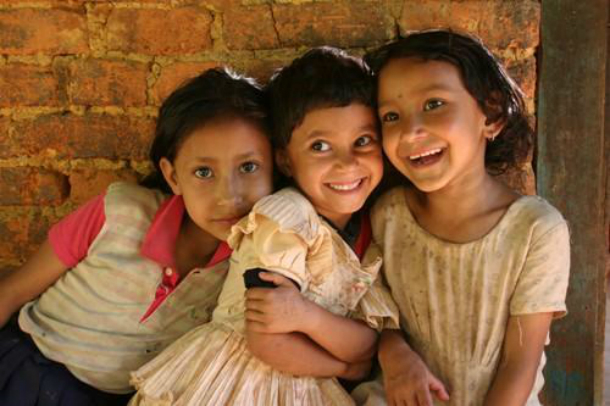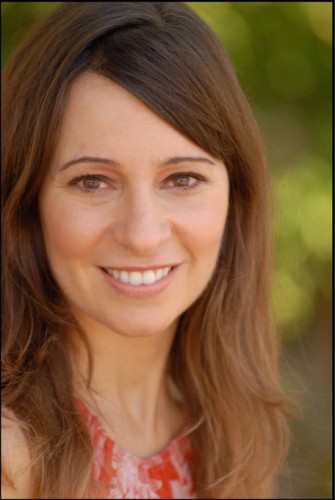Volunteering in 2016 is easier than ever. People are getting more and more used to navigating the web and putting their trust in non-profit organizations, who in turn have learned how to build a transparent relationship with their donors. This new ecosystem has become a reality, thanks to people like Pamela Hawley, who has contributed herself to this cause with two major projects: Volunteer Match and UniversalGiving. In an exclusive interview, RGNN converses with Ms. Hawley on her views on volunteering.
You have devoted your life to helping people all over the world. Was there a specific moment that made you turn helping others into your career?
Pamela Hawley: My motivation for helping people around the world began on a childhood trip to Central America at the age of 12. My dad and I were wandering around at a traditional marketplace, and we veered off into a little cul-de-sac. There, we saw so many starving children: unwashed, maimed, and some without legs. I was beyond shocked. I just remember looking at my dad in absolute awe. And the word “UNACCEPTABLE” became imprinted in my mind. This image stuck with me into adulthood, and the inspiration to become a force for good fueled my passion to start UniversalGiving.
Specifically, what led you to found UniversalGiving?
I started UniversalGiving to allow others to access a web-based marketplace that would help people give and volunteer all across the world with top performing projects. I wanted to help people, learn from people, listen to people, and address dire situations around the world where there was need. I wanted UniversalGiving to bring together elements that provide trust, which is imperative in giving. First, 100% of a person’s donation goes to the project of his or her choice. Second, we vet all of our projects through a 10-stage Quality Model. And finally, we’re nonprofit, so we provide that pure motive and transparency. I love using effective business skills to organize our team in a way that we can efficiently serve the world. We are one small but important part of the equation to help eliminate poverty.
UniversalGiving claims to give 100% of each donation directly to the cause. How do you manage to achieve that? Who are your main donors? How do you fund administrative expenses and maintaining your own staff?
Our nonprofit business model is financially sustainable through strategic partnerships with corporate clients. UniversalGiving Corporate manages Corporate Social Responsibility programs for Fortune 500 companies, including Cisco, Gap, BHP Billiton, and RSF Social Finance. Our services provide partners with strategic, operational and NGO vetting expertise – helping companies scale their philanthropy and volunteer programs locally and globally. We also receive support from numerous generous donors, many of whom have supported UniversalGiving from the very beginning.
Before UniversalGiving, you cofounded Volunteer Match, a website dedicated to find volunteer opportunities in the US. Are you still involved in Volunteer Match? (If not, why did you decide to move on?)
I cofounded VolunteerMatch in 1996 as a result of a “lucky” confluence of the Web (I love scale) and wanting to provide a solution for both individuals interested in volunteering in the US and nonprofits looking for volunteers. I left VolunteerMatch in 2001 in order to work towards my full calling of helping individuals in extreme poverty all over the world. That’s when I founded UniversalGiving.
You won the Jefferson Award, which is basically the Nobel Prize in Community Service, and have been invited by the White House to participate in their Next Generation Leadership and Social Innovation events. In your opinion, what are the most important humanitarian challenges we are facing in 2016? What can individuals do to help, and what should governments do?
The most important humanitarian challenge we face today is the same one we’ve faced for years, and that is the persistent challenge of treating all people with respect and love. Perhaps most recently, it’s our responsibility to show our compassion to and respect for refugees of the Syrian civil war. This responsibility falls on everyone from the government to corporations to individuals like you and me. Philanthropy is not about money. Anyone can be a philanthropist by giving of themselves, whether it be through resources, ideas, time, or heart.
You have travelled to places like India, El Salvador or Guatemala to help the local communities. What advice do you have for future first-time volunteers? Any words of guidance for those interested in helping humanitarian causes full-time?
First, regardless of whether you are a first-time volunteer or a career philanthropist, you need to find something that you care deeply about, something that makes you tick. That could be anything from combatting child labor to protecting polar bear habitats to building community healthcare facilities. Whatever it may be, you should feel passionate about and invested in the project in order to give your full self. Second, perform the due-diligence, or use the services of organization like UniversalGiving, to ensure that the organizations you’re working with are financially and ethically sound with a history of successful program implementation. Last, don’t assume you already know the best solution, listen thoughtfully to what the local community is telling you about their needs and challenges before working towards a solution.
*****
Pamela Hawley is the founder and CEO of UniversalGiving, an award-winning nonprofit helping people to donate and volunteer with top performing, vetted organizations all over the world. She is a winner of the Jefferson Award (the Nobel Prize in Community Service) and has been invited to three Social Innovation events at the White House. She also writes Living and Giving, a blog with the mission of “Inspiring Leaders to Live with Excellence and Love.” For more information about Pamela and UniversalGiving, follow them on Facebook, Twitter, and LinkedIn.


